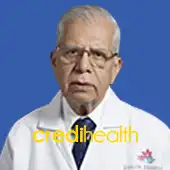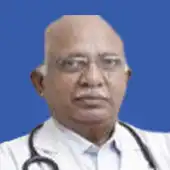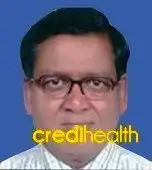Heart palpitations are feeling your heart beat rapidly, flutter, or pound. It might indicate a heart condition and should be evaluated by a healthcare professional. You might feel a vibration in the chest and neck. In this, we will study the causes, types, conditions, tests, and treatments.
| Causes | Heart Disease, Arrythmias, Thyroid disorders |
|---|---|
| Remedies | Lifestyle changes, Supportive care, Psychological support |
| Preventive Options | Avoid triggers, Lifestyle chnages, Monitor heart rate |
| Treatment Options | Medications(Beta-blockers, Calcium Channel Blockers), Cardiac Ablation |
| Specialist | Cardiologist |
Heart palpitations are when you can feel your heart beating fast, really hard, or strangely. It can feel like your heart is fluttering or skipping a beat. It can be scary, but most of the time, it's not anything serious. Sometimes it happens because you're feeling anxious or stressed or if you've had too much caffeine or alcohol. Sometimes it's because of a medical condition like anemia or an overactive thyroid. Therefore, it is essential to learn bout heart palpitation.

An abnormal sensation of the heart beating characterizes heart palpitations. The symptoms can include:
There are several types of heart palpitations, each with its own set of causes and characteristics. Some of the most common types include
Many conditions cause heart palpitations as a symptom. Some examples are given in the following.
The conditions such as Coronary artery disease, valvular heart disease, or cardiomyopathies can cause palpitations.
Abnormal heart rhythms such as atrial fibrillation, supraventricular tachycardia, or premature ventricular contractions can cause palpitations.
An overactive thyroid can cause palpitations due to an increase in heart rate.
This condition can cause palpitations due to low oxygen levels in the blood.
Abnormal levels of minerals such as potassium, magnesium, or calcium in the blood can cause palpitations.
Some medications can cause palpitations as a side effect, such as decongestants, asthma medications, or some antidepressants.
Consuming too much caffeine or alcohol can cause palpitations.
Heart palpitations are feeling your heart beat rapidly, flutter, or pound. A variety of factors, including the following, can cause them.
Emotional stress can cause an increase in heart rate, leading to palpitations.
As you are wondering, hormonal changes could cause heart palpitation. However, it is true because in some cases, like pregnancy, menopause, or taking certain medications, it can cause heart palpitations.
Consuming large amounts of caffeine or nicotine can cause an increase in heart rate, leading to palpitations.
Some medications, such as decongestants, asthma medications, and thyroid hormones, can cause palpitations.
Electrolyte imbalances, such as low potassium or magnesium levels, can cause palpitations.
Hyperthyroidism, an overactive thyroid, can cause an increase in heart rate, leading to palpitations.
Heart palpitations can be a symptom of an underlying heart condition, such as atrial fibrillation, supraventricular tachycardia, or ventricular tachycardia.
Low levels of iron in the blood, which can cause anemia, can cause palpitations.
Consuming large amounts of alcohol or using certain recreational drugs can cause palpitations.
The diagnosis of heart palpitations typically begins with a physical examination and a review of the patient's symptoms and medical history.
Treatment for heart palpitations typically depends on the underlying cause, but some general treatment options are mentioned down below.
Treating the underlying condition
If the heart palpitations are caused by an underlying medical condition, treating that condition can help to improve the vibrations.
Some medications indeed have side effects. For example, albuterol, amlodipine, and armodafinil cause pulses depending on the underlying cause. Some examples are included down below.
These medications slow down the heart rate and can help to reduce palpitations caused by anxiety or heart arrhythmias.
These medications can help relax the muscles in the heart and blood vessels and can treat palpitations caused by certain arrhythmias.
These medications are used to treat specific types of heart arrhythmias, such as atrial fibrillation or supraventricular tachycardia.
This medication is generally prescribed to treat certain heart arrhythmias, such as atrial fibrillation.
If anemia is causing the palpitations, taking iron supplements can help to raise the iron levels in the blood.
If an underactive thyroid is causing the palpitations, taking thyroid hormone replacement can help to regulate the thyroid function.
It is crucial to modify diet, exercise, and sleep habits, and avoiding triggers such as caffeine, alcohol, and nicotine can help to prevent palpitations.
A healthcare professional may recommend psychological support or counseling to help people cope with the emotional or psychological causes of palpitations.
This procedure uses radiofrequency energy or cryo-energy to destroy small areas of the heart tissue, causing abnormal heart rhythm.
Surgery may be an option for some individuals with heart palpitations caused by certain underlying conditions. Some examples include the following.
This procedure uses a catheter to destroy small areas of heart tissue. You must be wondering why? This is important to maintain the heart rhythm.
This surgical procedure creates a series of small incisions in the heart to help regulate abnormal heart rhythms.
If a slow heart rate causes palpitations, a pacemaker may be implanted to help regulate the heart rate. If a fast heart rate causes palpitations, a defibrillator may be implanted to help regulate the heart rate.
This surgery treats narrowed or blocked coronary arteries, which can cause irregular heartbeats or palpitations.
Preventive measures for heart palpitations include the following.
Many chronic heart diseases, congestive heart failure, heart disease, and thyroid disorders exist. Working with your healthcare professional to manage the condition and prevent palpitations is essential.
Eating a healthy diet, regular exercise, avoiding smoking, limiting alcohol and caffeine intake, and getting enough sleep can help to prevent palpitations.
If you know that certain things trigger your palpitations, such as stress, certain foods, or medications, try to avoid them.
Monitoring your heart rate
If you're experiencing palpitations, you can purchase devices to monitor the heart rate and bring the information to your healthcare professional.
Medications
If you are taking medications that may cause palpitations, speak with your healthcare professional about the side effects. Your doctor may modify the dose and frequency according to the side effects.
It's a good idea to see a healthcare professional if you have persistent or recurrent heart palpitations or if you experience any of the following symptoms given in the following.
If you have heart palpitations and are concerned about your health, it is important to seek immediate medical attention from a qualified heart palpitations doctor. A doctor specializing in treating heart palpitations, such as a Cardiologist, would be the right health professional to consult.
Here is a list of Top verified doctors for heart palpitations. You can book an appointment with one to start your heart palpitations treatment today.

Jaslok Hospital, Mumbai
Rs. 2,500 Consult Fees

CARE Hospital, Banjara Hills, Hyderabad
Rs. 1,000 Consult Fees

Indraprastha Apollo Hospital, Sarita Vihar, Delhi NCR
Rs. 1,800 Consult Fees
A hospital can provide various services to help diagnose and treat your heart palpitations. If you are experiencing heart palpitations In that case, it is important to visit a heart palpitations hospital for a proper diagnosis and treatment plan.
Check a list of Top Hospitals for heart palpitations treatment.
Multi Speciality Hospital
Established in 1918
🛌345 Beds
.png)
Multi Speciality Hospital
Established in 1940
🛌220 Beds

Multi Speciality Hospital
Established in 1947
🛌230 Beds
Frequently asked questions and answers about heart palpitations.
Are heart palpitations serious?
The majority of heart palpitations are not serious, but in some cases, they can indicate an underlying medical condition that requires treatment. It's always best to consult a healthcare professional if you have persistent or recurrent palpitations.
How can I stop heart palpitations?
You can try to stop heart palpitations by practicing relaxation techniques such as deep breathing or meditation, avoiding triggers such as caffeine or alcohol, staying hydrated, and getting enough sleep. If your heart palpitations persist or are severe, seek medical attention.
What are the causes of heart palpitations?
Heart palpitations can be caused by a variety of factors such as underlying medical conditions, medications, stress, caffeine or alcohol consumption, or electrolyte imbalances.
When should I worry about heart palpitations?
You should worry about heart palpitations if they are accompanied by symptoms such as chest pain, dizziness, shortness of breath, or fainting. Additionally, if you have a history of heart disease, you should seek medical attention if you experience heart palpitations.
Are heart palpitations a sign of a heart attack?
Not always. Heart palpitations can be a symptom of a heart attack, but they can also be caused by other conditions such as anxiety, hyperthyroidism, or anemia. It's always best to consult a healthcare professional if you have persistent or recurrent palpitations.
What does a heart palpitation feel like?
A heart palpitation can feel like a fluttering or racing sensation in the chest, as if the heart is skipping a beat or beating too hard or too fast. Some people may also experience a pounding or heavy sensation in the chest, and the palpitations may be accompanied by shortness of breath or dizziness.
Reviews by patients on different.
Anandita
My father went for a health check up alone at Kokilaben hospital. He was doing stess test and he developed Anterior wall Myocardial infarction (Major heart attack). Thanks to immediate attention by Dr. Pravin Kahale and his team who took my father immediately for Emergency angioplasty even though we were at home. In a heart attack, every minute delay leads to damage to heart muscle and has long term consequences of a weak heart. My father had good salvage and early prompt action lead to preserve heart pumping. Dr. Kahale is an excellent doctor. He has very deep knowledge. He writes few but best medications. He also makes us understand complex things in simple language. Our entire family would strongly recommend Dr. Kahale as a cardiolgist who can deliver the best in most complex cardiac issues. He is always accessible to the entire family and is only a phone call/ message away and resolves all the queries. Highly recommended!
Ishwar Devi
Artemis Hospital
<p>My mother had a bad chest pain the other day. We decided to get her regular checkup done and approached Credihealth for the same. After a couple of options, we decided to visit Artemis. The overall process was very smooth. The ECG had some abnormality. So we consulted Dr Kuldeep Arora for it. He is one gem of a doctor. He was very friendly to talk to. Very sensitive to my mothers concerns. He explained all the medical reports including ECG. We gained immediate confidence in the doctor. He advised a few additional tests. Those were done on same day. After seeing those reports, he proposed a treatment plan. Considering my mothers age, it was empathetic for him to tell no to any procedure. He recommended meds for 2 months and told us to come back in between. Friendly, sensitive and empathetic. All in all good experience.</p>
Dr. Bhabendra Nath Kalita
Dr. Venkatesh treated my dad with utmost care. Although my dad & his reports were not in station, he eagerly looked into the Angiogram video (done in a different place) of my father in my mobile and suggesting corrective treatments. He patiently advised me many things and repeated them again & again for my better understanding. The operation was done by Dr. Girish and although it was critical, it was successful. Dr. Venkatesh has visited us many times during our stay at the hospital despite his busy schedule to inquire about the wellbeing of my father. During the follow-up visits, Dr. Venkatesh has examined my Dad with utmost details, gave proper advice, and suggested & changed medicine courses to suit my dad's body as he has high blood pressure & diabetics. I wish him great success in his career and love of his patients.
Credihealth is an online healthcare portal for all your hospital appointments, diagnostic test bookings, ordering medications, or homecare services. If you have any inquiries, our in-house medical experts can help solve them and guide you to the best specialist in the India.